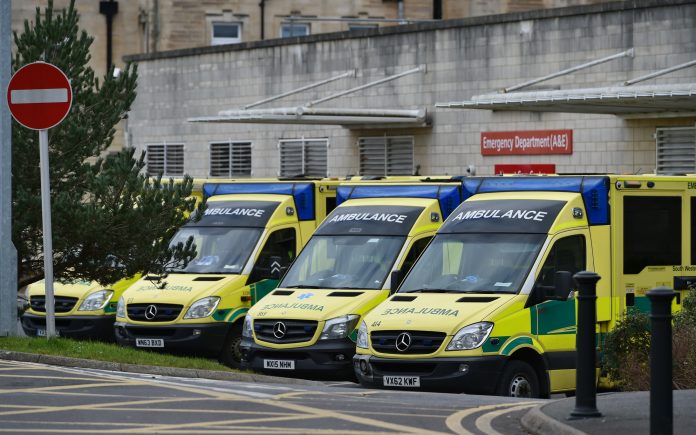Gary Smith, chartered financial planner at Tilney, responds to the Government’s proposals to deal with the current crisis facing members of the NHS Pension Scheme
Whilst the proposals are welcome in that they recognise there is a problem that needs to be resolved, in my opinion they failed to address the reasons why this crisis has developed, and secondly how these could be addressed in an effective manner. In order to resolve this crisis, I would urge the Government to consider the following changes as part of their consultation programme.
-
Scrap the Tapered Annual Allowance
This allowance was introduced in April 2016 and was designed to cover the cost of funding the Residence Nil Rate Band, which aimed to allow a couple to pass up to £1m of their assets to their family, free of inheritance tax. It reduces the standard Annual Allowance of £40,000, for those with total earnings above £150,000, with the allowance reduced by £1 for every £2 of income earned between £150,000 and £210,000.
For those earning £210,000 or more, the Annual Allowance drops by 75% to £10,000. The tapered allowance is overcomplicated, and difficult to calculate, as the definition of income includes, not only income from all sources which may be variable, but also employer pension contributions, and this is often overlooked when people try to assess if they will be impacted.
Furthermore, in the case of the NHS Pension Scheme, it is not the actual amount contributed into the scheme by the employer that is assessed but, the deemed growth in the annual pension benefits, less any personal contributions made.
Due to the complexity of this regime, coupled with the high tax charges that are resulting from the tapering, I would urge the new Chancellor, Sajid Javid, who has set out his stall as a sceptic of punitive taxation to scrap the tapered allowance for all pension savers. Whilst the scrapping of the tapered Annual Allowance will reduce tax liabilities for high earners in the NHS Pension Scheme, it won’t solve all of the issues.
-
Final Salary Link
In my opinion, the final salary link is the key issue as to why many members of the NHS Pension Scheme are currently incurring such high inputs for Annual Allowance purposes, with resulting high tax charges.
So what is the ‘final salary link’ and why is it causing such an issue?
In 2015, the NHS moved most members into the new 2015 version of the scheme, where a member secures a pension entitlement based upon their income in each scheme year, rather than based upon their final salary, which will often be significantly greater as they progress through the NHS.
At the same point, previous members of the 1995 version of the scheme, an arrangement where their pension income would be based on their final salary; the pensionable salary they receive prior to their retirement rather than how much they currently earn, had their membership frozen.
Rather than simply increasing this frozen benefit by the annual rate of inflation, it retained a final salary link meaning that, if the members’ pensionable salary increases in the future, their pension from the 1995 scheme will also increase.
As long as the members’ pensionable salary doesn’t increase, the final salary link won’t create an issue but, where salary does increase (incremental awards being a good example), this will result in the value of their 1995 scheme benefits increasing, with an input for the Annual Allowance, which is in addition to the input from the 2015 scheme.
So where salary does increase, the member effectively suffers double accrual for Annual Allowance purposes. I recently dealt with a scheme member whose salary increased by £7,000 and this resulted in an Annual Allowance input of £41,000 for the 2015 scheme, and an input of £35,000 for the 1995 scheme, making a total of £76,000 and they only had a tapered Annual Allowance of £10,000!
This issue could be addressed by either: –
- Removing the final salary link altogether for all versions of the NHS Pension Scheme, as this will effectively prevent any Annual Allowance inputs from frozen scheme entitlements and prevent double accrual for Annual Allowance purposes.
- Retain the final salary link and, in a year where a member knows they are going to receive an incremental award, provide them with the option of opting out of the 2015 scheme (for that year only). This will result in them only having an Annual Allowance input from the 1995 scheme.
-
Introduce a defined contribution NHS Pension Scheme
One of the proposals made by the Government would be to allow members to opt-out of the scheme and receive the employer contributions of 20% as salary instead. As I explained in my previous note, this would lead to increased income tax for the member, and increased National Insurance payments for both the NHS and the member. As an alternative, the scheme could receive a defined contribution arrangement, into which members could opt to join or remain in the 2015 career average scheme.
So why would this help?
- With a defined contribution arrangement, a member will know what their Annual Allowance inputs will be, as these will simply be the total contributions paid personally and by the employer. This simplifies planning for members.
- If they do opt out of the 2015 scheme, then having contributions paid into the DC arrangement will enable them to still receive income tax relief on their personal contributions, whilst also benefiting from the employer contribution of 20% continuing to be made. This will save income tax and National Insurance payments.
- If they do exceed their Annual Allowance, making a scheme pays election from a DC arrangement enables the tax charge to be paid immediately. Within the current scheme, where the member requests the scheme to pay the tax charge, the scheme pays the tax charge for the member and this then creates a debit against their pension benefits that is subject to inflationary increases until they take retirement benefits, with a deduction then applied to their starting pension. Having an unknown future liability of the deduction to pension is creating anxiety amongst many members, and having the option for a DC arrangement to pay the tax charge would alleviate this concern.
- The Government suggested allowing members of the scheme to have flexibility in contribution rates to reduce the potential of them exceeding their available Annual Allowance. Whilst this would not necessarily work for the current DB scheme, it would certainly be a valuable option within a DC arrangement.
- The DC scheme will not provide the member with a guaranteed pension benefit in retirement, but it will provide greater flexibility in the retirement benefits they can receive. Furthermore, where a member has already built up a large guaranteed defined benefit entitlement from their previous membership, having the option of a DC arrangement for future funding might appeal to them.
- If a member does opt out of the scheme, either permanently or on a temporary basis, they would lose their death-in-service benefits for the period that they have opted out. Whilst this might not be an issue for all, for those members who have suffered health issues and, who might not be able to secure personally funded life cover, the loss of this valuable benefit could well be an issue. Therefore, offering the option of moving into a DC arrangement, rather than opting out altogether could be beneficial, as it will enable the death-in-service benefit to be retained.
- The NHS Pension Scheme provides members with a valuable benefit in their retirement but it is not ideal for members who have short life expectancies and who might be divorced or widowed, as the pension will often die with them and provided no benefit for family members. In contrast, the value of a DC pension can currently be inherited by family members on death, and some NHS Pension Scheme members might prefer this facility.
There is no doubt that radical changes need to be made and as a matter of urgency, to address the current crisis in the NHS Pension Scheme and the problems this is causing for patient care as hours are scaled back and waiting lists surge.
Unfortunately, there is no magic solution. That said, I believe that the aforementioned proposals would deal with a number of the factors that have resulted in this current crisis, and hope that the Government might consider some of them as part of their current review.












Government:
Do not take away my final salary pension scheme just to solve a problem you have caused for people who earn 4 or 5 times the amount I do. I think this is a self serving article, and you will find serious industrial unrest if you try it.
Solve the problem you have caused without messing up everyone else’s world. 20% sounds a lot and is a trap for the unwary with no pension knowledge, which I suspect is why you are suggesting it. But you would be taking away my Pension Guarantee in return for a pension that follows investment markets. Investment markets are about to be buggered by BREXIT – the FS scheme will cost more than 20% or why would you do it.. There are few FS schemes left – don’t steal ours. Do a poll of IFAs if you feel I am wrong.